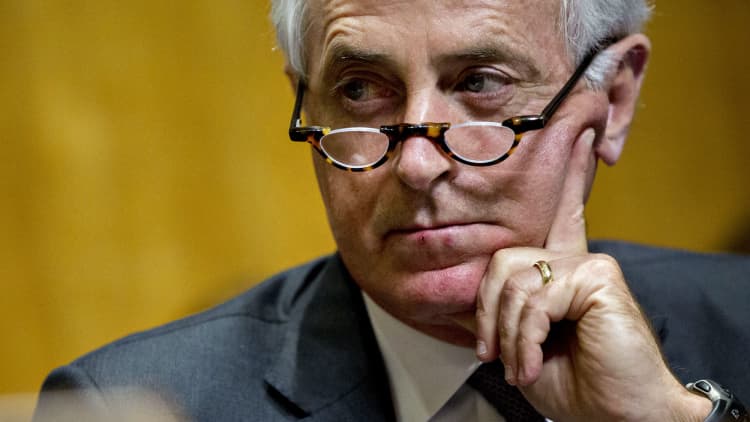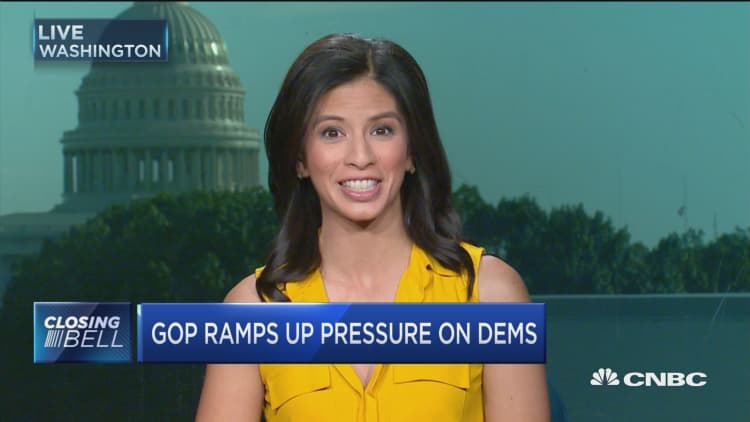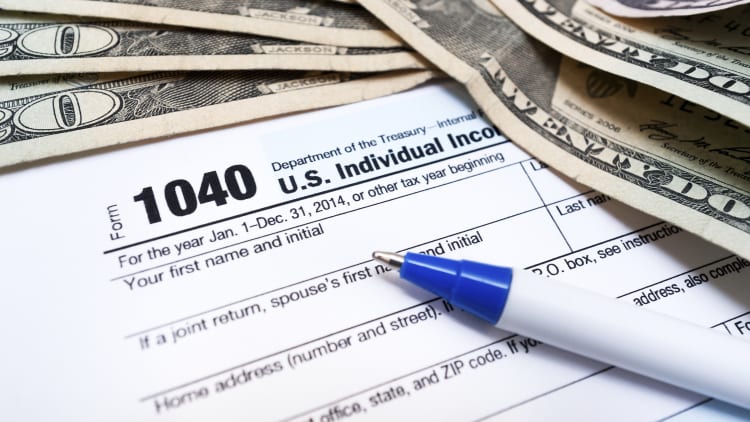
Even amid the latest salvo in the Twitter wars between President Donald Trump and Congress, Wall Street is optimistic that the fighting factions can find their way to tax reform.
Goldman Sachs is currently assigning a 65 percent chance that the multiple sides in the tax debate can come to some kind of agreement in 2018. If so, that would push the stock market higher, with the hitting 2,610, or roughly 2.5 percent from Monday's opening level, according to the firm's analysis.
That's not a lot of impact, though it could be argued that much of the 2017 rally, which has pushed the index up nearly 14 percent, has been pricing in tax reform. David Kostin, Goldman's chief investment strategist, said tax reform's progress will outweigh a muted earnings season to push stocks higher.

Goldman has an otherwise muted forecast for the market. The firm expects the S&P 500 to close 2017 at 2,400, which would represent a 6.3 percent slide from the current level.
But Goldman is not the only firm looking for a deal.
Nomura economist Lewis Alexander said he expects tax cuts to pass "in early 2018." However, that will probably be part of a less ambitious measure than the sweeping reform that Trump and congressional Republicans had promised.
"We remain pessimistic that serious reform will be passed and that Republicans will be able to raise enough revenue to permanently cover the costs of significantly lowering the corporate tax rate," Alexander said in a note. "Substantial tax reform, which includes closing loopholes and creating winners and losers, has not occurred since 1986."
The current proposal has resistance on both sides. The provision to cut corporate taxes and lower the rate for top-tier earners and remove the estate tax has Democrats angered that it's a giveaway to the rich. Republicans, meantime, rue that cutting taxes without closing loopholes will balloon the $693 billion budget deficit and the $20.4 trillion national debt.
Sen. Bob Corker, in particular, has indicated that he will oppose any bill that increases the deficit. The Tennessee Republican and Trump engaged in a very public Twitter battle over the weekend. Corker has said he will not run for re-election in 2018.
To be sure, given the tense political climate, there's some pessimism that a tax deal will get done.
Greg Valliere, chief global strategist at Horizon Investments, pointed to an interview budget director Mick Mulvaney gave with NBC News' "Meet the Press" this week indicating that the administration would be willing to take on higher deficits if it meant stronger growth.
"This Keynesian dogma, coming from a former hard-line deficit hawk, has bewildered many Republicans like Corker, while supply-side Republicans are dismayed that abolition of the estate tax looks less likely," Valliere wrote in his daily note. "There's no margin for error on a tax bill, as Republicans waver and Democrats reject any compromise."
For now, Valliere said, "bipartisanship is dead," and that will make it all the more difficult for Trump to push his tax plan through.
WATCH: Opposing factions in the tax wars debate whether cuts bring growth.

Correction: Sen. Bob Corker is a Tennessee Republican. An earlier version misidentified the state.


